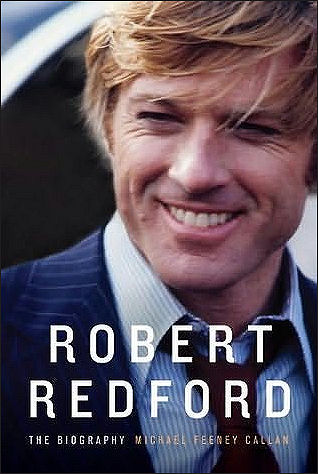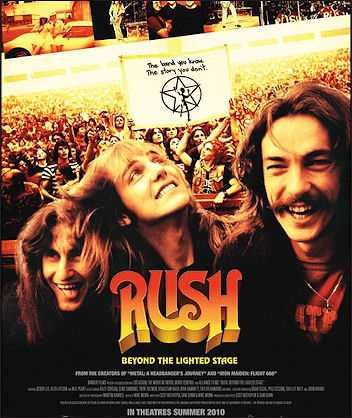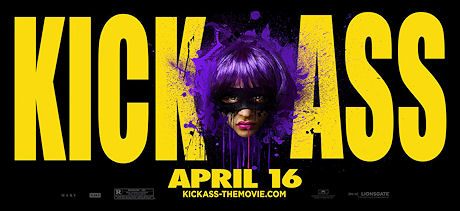Actuals report that the predicted second-place finish by Kick-Ass didn’t quite materialize. Instead of getting slightly beaten by How To Train Your Dragon by a margin of a million or less, Kick-Ass managed to eke out a $200,000 margin of victory over the animated DreamWorks release. In so doing Kick-Ass and the Lionsgate team have just barely saved face — fine. The bottom line is that Matthew Vaughn‘s satiric comic-book actioner did semi-respectably, but did not whoop or kick ass by any stretch of the dictionary.
Carlos Baby
What was deemed very likely earlier this month is now assured — Olivier Assayas‘ five-hour-long Carlos will screen out-of-competition at next month’s Cannes Film Festival. As noted before, a five-hour sit plus a press conference plus writing a review is going to nearly eat up an entire day. I’d personally love a chance to see Carlos before Cannes for the sake of time efficiency alone.
Another Dental Day
Which means I have to drive to New Jersey again and buy gas and read magazines in a reception area and blow most of the day. Which means limited posting from whatever cafes or McDonalds or Starbucks that I’m able to slip into. I hate McDonalds on general principle, but they also tend to have few if any electrical wall outlets; Starbucks will always have at least one or two outlets near tables.
Save The Good Stuff
The best movie trailers (i.e., the most stylistically or aesthetically admirable) emphasize impressions and intimations over specific plot reveals. The worst trailers basically offer compressed versions of the films they’re selling, delivering 80% or 90% of the story line and effectively saying “okay, you’ve now been told pretty much what the movie will be, and what 90% of the key plot points will be. If you want to see the longer version with those final plot points included, please come back and buy a ticket on opening day.”
But even the classiest trailers are obliged to include catchy lines and noteworthy visual moments. The initial trailer for Wall Street 2: Money Never Sleeps showed Michael Douglas‘s Gordon Gekko (a) receiving his 1987 cell phone as he gets out of prison and (b) checking out some rich black guys as they get into a shiny black limousine. The newish, month-old trailer uses the cell-phone gag as well. Which is too bad in a way because while it was amusing at first, it’s now been milked to death. So when we see this moment in the feature it won’t mean much. The audience will be saying “okay, fine…next?”
It led me ask why don’t filmmakers (directors, screenwriters, producers) dream up and shoot material that alludes to the basic components in a given film — tone, story, attitude — but which isn’t intended to be used in the feature cut. Material, in other words, that’s intended to be used strictly for trailers. Creative add-ons, content-related out-takes, advertising B-roll. In which case trailer-cutters wouldn’t be filching from the movie and killing the enjoyments of the original material.
Employee Relations
There are certain behavioral tendencies among industry folk that one observes over the years — tendencies that don’t seem important enough to mention in an article or even an item, and yet they happen. For example: Some people who work for big-time movie stars tend to not only think like their employers, but to literally imitate their voices and manner and personalities. Bizarre but true. They strive to become, in effect, not just the movie star’s sibling, but almost a kind of twin.
It’s natural, of course, for people to hire assistants who seem like somewhat-lesser mirror reflections of themselves; it’s obviously sensible and comforting to work with people you feel a natural bond with. The curious thing (and I’ve definitely noticed this a few times) is when the employer-resembling employee deliberately sets out to become a sort of version B to the point of mimicking the employer’s speech patterns, adopting similar habits, dressing the same, etc. That’s all I’m going to say. I could name names but what’s the point of agitating or embarassing?
No Cannes Tree
Earlier today Awards Daily‘s Sasha Stone posted “some comments by a visual effects guy named ‘Stan’ on a Slashfilm post” that discussed Terrence Malick‘s Tree of Life. Interesting commentary but primarily the guy is saying that the film “will not make Cannes.”
“[Malick recently] screened it to an audience of about thirty, and it’s literally 97% done,” he writes. “Our boss was able to see it, and called it the best film of [Malick’s] since Badlands. Emmanuel Lubezki was in attendance, as were some visual fx gurus (one of whom was my boss).
“It will not make Cannes [because] the visual effects aren’t done, but the footage that we’ve worked on is near complete. The reason for the delay in post is because of the amount of detail [that] IMAX 70 mm requires. I can assure you that the results are worth the wait.
“Is the IMAX 70MM footage going to be released in a separate documentary, or is it to be incorporated into an IMAX release of The Tree of Life? I ask because there were a lot of rumours about a related IMAX documentary called Voyage of Time, but I suspect that might just have been a codename for additional IMAX shooting for TOL.
“Our house is referring to it as Voyage of Time. I don’t know if it will be a separate documentary. Terrence has made sure that we work on footage without knowing too much of the plot or reason behind it. It’s always about a feeling or an emotion. He is definitely the most interesting director we’ve had the pleasure of working with, and probably the only who’s interacted with the digital artists themselves. He has never settled for results less than immaculate, but is humble and patient about it.”
Missing Irishmen
It’s been estimated that the researching and writing of Star: How Warren Beatty Seduced America consumed at least seven or eight years of Peter Biskind‘s life. But even this pales next to the writing of Michael Feeney Callan‘s Robert Redford biography, which was being worked on at least twelve years ago (according to a critic friend who was introduced to Callan as Redford’s biographer prior to the May 1998 release of The Horse Whisperer), if not a year or two prior.

Callan’s Wikipedia biography says that “for ten years from the middle nineties, Callan travelled throughout the United States interviewing more than 400 sources for his…landmark Redford biography, which has been written with the cooperation of the subject who has provided unrestricted access to his diaries, scripts and personal records.”
Well and good, but where’s the book already? And who’s publishing this thing? Callan’s Wiki page says Random House intended to publish in November 2009, and Amazon has Simon & Schuster planning to publish four months from now.
After twelve or more years of intensive labor (and working on any project with Redford will always be a slog due to the usual delays whenever Redford is involved — ask anyone who’s been there), will Simon & Schuster hold to their announced August 1, 2010 release date — or will the book be bumped again, as it was late last year?
Could Simon & Schuster be waiting for a distribution deal to be announced for Redford’s The Conspirator so they can arrange for a little piggy-back action?
The book runs 448 pages, according to Amazon. But obviously Callan has to continually update it. Who’d want to read a Redford bio that isn’t fully current at the time of release?
The August 2010 release is only four months off so why doesn’t the Amazon page show cover art (as a UK Fantastic Fiction site does), and why is there only a mention of a paperback release? And why isn’t the book mentioned on Simon & Schuster’s website? (The British site also mentions an August 2010 paperback release.)
Callan’s Wiki page says the Redford bioiography “will be published in November 2009 by Random House, USA.” And a 7.30.09 N.Y. Daily News article about Callan’s Redford biography, written by Gatecrasher‘s Amanda Sidman and Carson Griffith, also forecasted an 11.09 release.
Obviously that never happened. The above-referenced critic claims a January 2010 release was also announced, perhaps intended as a tie-in with Redford’s Sundance Film Festival, but I can’t find any mentions or links to this.
Hang Your Head
The Kick-Ass projections haven’t changed — it’s still expected to come in slightly under $20 million for the weekend — but insult has now been added to injury with estimates now claiming that DreamWorks’ How To Train Your Dragon will take first place with a clean $20 million vs. $19.8 million for Kick-Ass.
The Lionsgate release was seen as a surprise short-faller yesterday morning — now it’s been humiliated by getting whipped by a three-week-old family film. Tomorrow’s actuals will tell the final tale, of course, but even if Dragon doesn’t edge out Kick-Ass by a couple of hundred thou — if there’s a near-tie, say — it’ll still be an embarassment.
The Wrap‘s Daniel Frankel reports that Dragon‘s third weekend saw a mere 19 percent drop from last weekend. It has $158 million and change from North American ticket sales alone, and has grossed $320 million worldwide.
I'll Be Honest
My first reaction when I read about all the thousands of European flights grounded by the huge plume of ash from the eruption of Iceland’s Eyjafjallajokull volcano was one of vague relief. I’m glad it’s happening now, I mean, rather than 22 days hence when the Cannes Film Festival begins. My jet might not even leave New York under these conditions.
The eruption “was continuing as of early Sunday morning and possibly intensifying, with the ash plume rising to 30,000 feet,” a N.Y. Times report says.
“The cloud had extended as far south as Spain overnight, prompting the closure of airspace in the northern part of that country, according to Eurocontrol. Airports across most of the continent were expected to remain shuttered at least into Sunday afternoon, though a few countries, including France and Switzerland, had opened at least parts of their airspace to allow overflights above 35,000 feet.”
The Great Dede Allen
The death of legendary editor Dede Allen, 86, naturally requires an acknowledgment of her innovations. Those would be (a) shock or jump cuts and (b) running sound from a forthcoming scene before actually cutting to it — i.e.. “pre-lapping.” And yet the biggest feather in Allen’s cap has always been (and always will be) her cutting of the country-road massacre finale from Bonnie and Clyde. Still a knockout but truly astonishing back in the day.
I’ve never forgotten and never will forget that clip of a briefly exhilarated Faye Dunaway looking up at the flying birds just before the roar of gunfire. My favorite description of the carnage what followed was from Pauline Kael — i.e., a “rag-doll dance of death.”
The irony is that Allen allowed assistant Jerry Greenberg to do the actual cutting on this sequence. Allen supervised, of course, but “she let him do that,” says Warren Beatty biographer Peter Biskind.
The legend is that Allen borrowed her jump cuts and shock cuts from French nouvelle vague films. And yet Biskind says Allen told him this wasn’t so. “She said she never watched very many French new wave films and that she basically got these techniques from working on TV commercials,” Biskind recalled this morning.
I’ve spent the last half-hour searching around for a visual tutorial that explicitly shows how Allen applied her innovations, but no dice so far. You’d think someone would have cut one together by now. Allen has been on the map since 1961, after all, when she landed her first solo editing credit on Robert Rossen‘s The Hustler.
In the ’60s, ’70s and ’80s Allen’s name was a signifier of elegant class-act cinema. Her credits beside Bonnie and Clyde and The Hustler included significant films by Arthur Penn (Alice’s Restaurant, Little Big Man, Night Moves and The Missouri Breaks), Paul Newman (Rachel, Rachel, Harry & Son), Warren Beatty (Reds, which was co-edited by Craig McKay), Sidney Lumet (Serpico, Dog Day Afternoon, The Wiz), George Roy Hill (Slaughterhouse-Five, Slap Shot) and Robert Redford (The Milagro Beanfield War).
From 1958’s Terror From The Year 5000 through ’08’s Fireflies in the Garden, Allen edited or co-edited some 31 films. She bailed on editing 1992 to 2000 after taking the job of head of post production at Warner Bros.
Claudia Luther‘s L.A. Times obit says Allen “was the first film editor — male or female — to receive sole credit on a movie for her work,” and that “this honor came with Bonnie and Clyde.” Okay, maybe…but why does Allen have sole credit as the Hustler editor on the IMDB? I was home I’d run the DVD and double-check. (I’m currently sitting in a motel room on Route 7 in Ridgefield, Connecticut.)
I’ve always loved the opening-credit sequence in The Hustler, which I presume Allen had something to do with. It basically used footage from various scenes throughout the film (which a first-time viewer obviously wouldn’t have the first contextual clue about) and freeze-frame them when the credit pops up — i.e., “directed by Robert Rossen.” I don’t know for a fact that Allen came up with this idea, but it would fit into her profile if she did.
Agonies of Rush
Last night I sat through — endured — a good portion of Scot McFadyen and Sam Dunn‘s Rush: Beyond The Lighted Stage, which will play the Tribeca Film Festival on 4.24. I wanted to leave right away but I stuck it out for an hour. It reminded me of a decision I made after listening to a couple of Rush tracks in the mid ’70s, which was to never listen to anything by these guys again — ever.

Rush: Beyond The Lighted Stage is a fairly dishonest film in that McFadyen and Dunn, friends of this long-running Canadian rock band, make an effort to persuaded uninitiated viewers that Rush is a respected, generally admired group that makes reasonably engaging music.
Respected and admired as this trio may be in certain perverse circles, they’re a deeply unpleasant band to listen to, or watch even. The fact that they’re especially big in Middle America should tell you a lot. Their music is shrill, excruciating, repellent, un-catchy, and about as un-melodically melodic as anything I’ve ever heard. They make you want to leave the room and run as fast and far as you can.
Lead singer and bassist Geddy Lee‘s high-pitched voice, especially, is a demon wail of an epileptic cat with cancer — a banshee on helium. And Rush’s lyrics strike me (and would strike anyone) as poetic sci-fi fantasy-visionary babbledygook glop-slop. Plus they’ve been into Ayn Rand and call/have called themselves Libertarians? Which means what…they have a soft spot for this or that aspect of conservatism on top of everything else?
The doc is decently made — I’ll give McFayden and Dunn that. But Rush dispenses pain. They’re among the most loathed bands of all time by the measure of most respected rock critics. I could take and even half-enjoy Anvil’s music, but not Rush. And yet they’ve been going since the late ’60s, and have millions of true-blue fans. Go figure. All I know is, the time I spent with this doc last night was a minus experience. It took from me and left me with less than what I had when it began.
Kick-Ass Stumbles…Yes!
With a certain portion of HE readers now having seen Kick-Ass, are there theories as to why it collected a mere $7.5 million yesterday (per figures supplied last night by Nikki Finke) and may not even crack $20 million by Sunday night? Even if it reaches or slightly crests that figure, it’ll still be way short of the high 20s tally that some were expecting.

Obviously these numbers reflect marketing perception and not the film itself, but compare what happened yesterday to the initial groundswell of excitement that came out of the first South by Southwest Kick-Ass screening. Clearly something didn’t quite translate, but why? Apparently the Joe Popcorn crowd (including the under-25s) looked, sniffed, thought things over and went “maybe,” “meh” and “okay but tomorrow night or Sunday or something…no rush.”
How commercially over-esteemed is the cult of comic-book genre geeks, who’ve always been pronounced in their affections but seem increasingly devoted to hyper-violent realms and myths that aren’t just separate from but seem more and more opposed to the shape and terms of the actual world? Inspiring CG-infested films seem more and more repetitive, more and more about themselves and pathetic geek-boy fantasies. Has the worm turned? Are genre geeks beginning to be seen for what they are (or at least are starting to become) — i.e., the Branch Davidians of the moviegoing public?
Tracking indicated that Kick-Ass would trounce Death at a Funeral , and fairly decisively. But the apparent reality is that while Death will come in second, it’ll be only a couple of million behind instead of an expected margin of at least five or six million, if not more so.
What has happened? What is the lesson?

